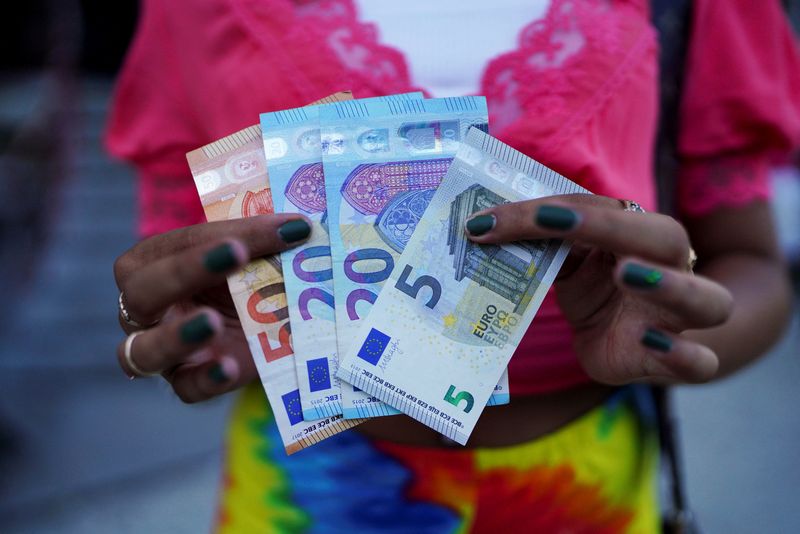By Dave Sherwood
HAVANA (Reuters) - Rider Gonzalez helps run a small cafe in touristy downtown Havana, a challenge in a country where coffee-shop staples like milk and flour are scarce, sometimes even impossible to find.
But lately, he says, the plunging Cuban peso - which this week fell to a 30-year low on the informal market, according to independent online tracker El Toque - has turned even the shop´s simple menu into a head-scratcher.
Gonzalez must buy ingredients at grocery stores that sell in dollars, but charges his clients in pesos. As the peso weakens, he needs more of them to purchase the same amount of ingredients, and so, must raise prices.
"Every day we have to print new menus (with the new prices)," Gonzalez told Reuters as his cafe prepared to open one early morning this week. "Our clients of course aren´t happy."
It wasn´t supposed to be this way. In early August, the Cuban government reopened trading houses closed for nearly two years to citizens and tourists, at a favorable rate on par with the thriving black market, a move it said would help stabilize the peso.
"The state must reestablish control of the exchange rate," Economy Minister Alejandro Gil said at the time of the announcement. "We will defend our ... rate at 120 pesos to the dollar."
The black market, however, has not been swayed.
On Thursday, the peso weakened to 155 to the dollar, El Toque reported, its lowest point since the so-called "Special Period" in Cuba, the deep economic depression that followed the 1991 collapse of former benefactor the Soviet Union.
"The price of a dollar is the price at which you find it, not the one the government wants to impose," said Ricardo Torres a U.S.-based Cuban economist. "The reality is, the government hasn´t resolved the underlying problems."
Torres says a record-breaking emigration of Cubans - upwards of 180,000 have arrived at the U.S.-Mexico border in the past year - is one extraordinary factor driving the peso´s dramatic plunge.
If each of those migrants needed a conservative $8,000 to make that voyage, that´s upwards of $1.4 billion in demand for dollars, at least some of which was likely bought on the black market in Cuba, Torres said.
"That is money that left all together, those people bought currency in Cuba, currency that was already scarce, and they took it with them," he said.
Those dollars are not being replenished, he said, because tourism, exports and remittances - key sources of much-needed dollars to cash-strapped Cuba, have all failed to recover to pre-pandemic levels, under pressure from continued U.S. sanctions and a floundering global economy.
DOLLARS OR BUST
Cubans have had little choice but to trade for dollars on the black market since 2020, after the government closed its trading houses to stem the loss of hard currency needed to buy goods outside Cuba.
After the government reopened the formal exchange market last month, long lines formed at many exchange houses, known by their initials CADECA, to take advantage of initially favorable rates.
Since, then, the lines have shortened, in part because of the still limited availability of hard cash.
Moises Gonzalez, a painter and sculptor who waited in a line of 80 or so Cubans earlier this week at a CADECA in the upscale neighborhood of Vedado, was among the lucky ones.
The opportunity to exchange legally, says Gonzalez, "is much better because we don´t have to take risks on the black market."
Others, however, like Julio Cesar, a 36-year old tourism guide out of work for months amid a dearth of foreign visitors, have no way of earning dollars and so must scrape by on the few pesos - every day worth less - that they can muster.

For him, the lesson from the growing exchange rate crisis is clear.
"Anyone who doesn´t have foreign currency in Cuba is screwed."